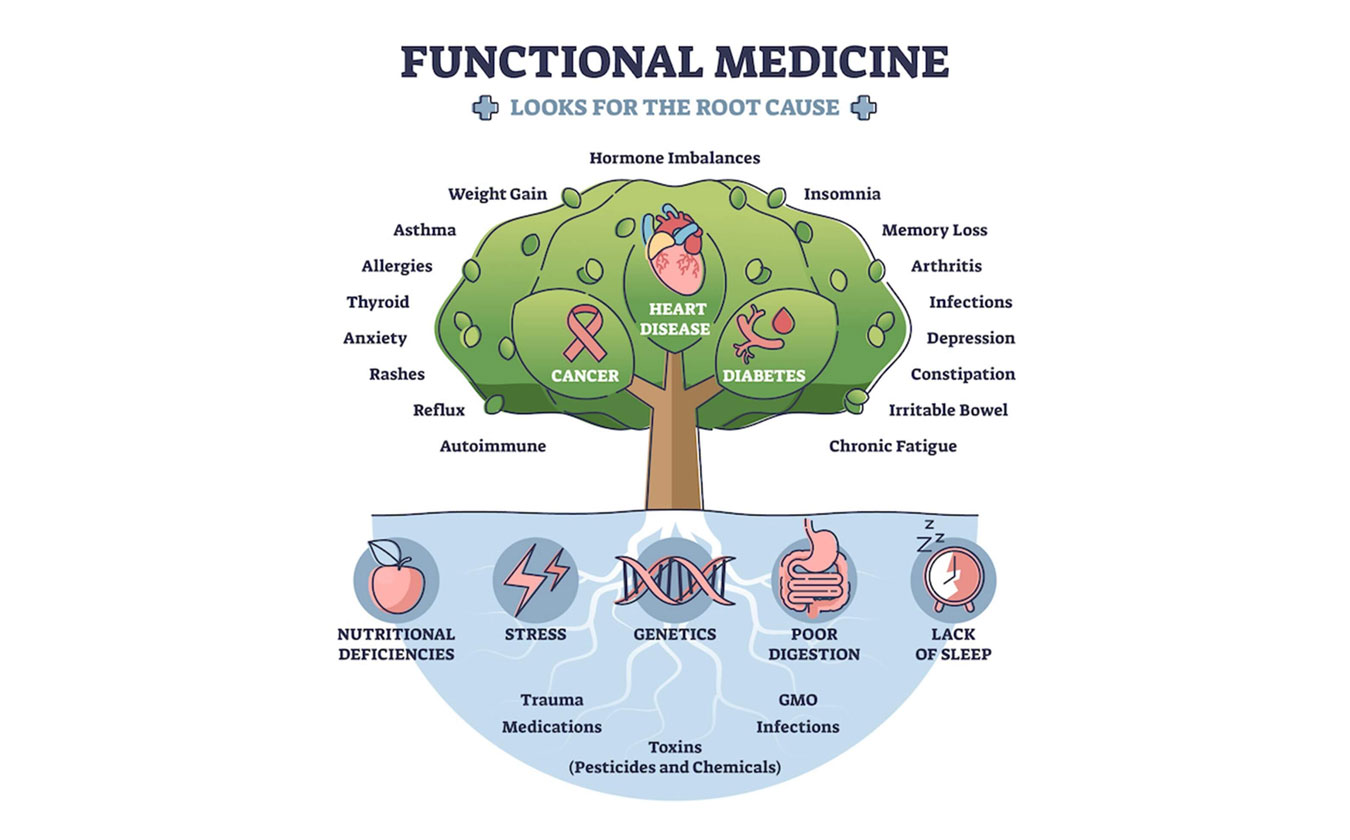Brain health has become a more mainstream topic over recent years and it refers to the overall well-being and optimal functioning of the brain. It includes aspects such as cognitive function, emotional well-being, mental clarity, memory, attention, and the ability to learn and process information effectively. Maintaining optimal brain health is crucial for our physical and mental well-being throughout life, and especially as we age. It used to be thought that cognitive decline wasn’t only inevitable as we age, but it was also believed there wasn’t anything we can do to prevent it. The good news is that neither of those scenarios are necessarily true and there are plenty of diet and lifestyle habits we can incorporate to improve our brain health. The earlier in life we start implementing these strategies, the better the outcome is likely to be.

1. EXERCISE
“Exercise is the closest thing modern science has found to a wonder drug. Regular aerobic exercise can help people maintain a healthy weight, improve mood and energy levels, and manage chronic disease risk factors like high blood pressure. Exercise has even been shown to have an impact at the genetic level, by activating the gene profiles responsible for creating brain-derived neurotrophic factor (BDNF). In a 2013 study published in the Journal of the American Medical Association, increased levels of BDNF were shown to stimulate brain cell growth and lower the risk of developing devastating neurological diseases like dementia and Alzheimer’s. Even if the brain is already battling a chronic condition, exercise has been shown to correlate with positive outcomes and increased functional ability in Alzheimer’s and dementia. Clearly, sweating regularly is good for the mind, body, and soul! Just be sure to check with your doctor prior to beginning a new exercise regimen.

2. INCREASE DAILY INTAKE OF ANTIOXIDANTS, HEALTHY FATS, AND FOODS THAT FIGHT INFLAMMATION
Second to exercise, the most important lifestyle factor in determining overall brain health is diet. The food you eat has the power to drastically improve brain health specifically, and your overall health in general. Conversely, if you do not pay attention to what you eat, it can be very difficult to maintain or improve brain health. On the whole, limiting sugar and carbohydrate intake while maximizing intake of healthy fats and fiber can help reduce inflammation and improve overall health. Additionally, increasing the intake of foods rich in antioxidants and anti-inflammatory compounds can help maximize your brain’s potential. Examples of these foods include above-ground leafy vegetables, olive and coconut oils, blueberries, avocados, and, best of all, dark chocolate.

3. NURTURE YOUR GUT BACTERIA
Chronic inflammation underpins many of the most prevalent chronic diseases,
including Alzheimer’s, multiple sclerosis and dementia. Inflammation is understood to be a systemic response by the immune system to perceived foreign invaders in the body, but to a large extent scientists are still sorting out the mechanisms and impact of inflammation. The Journal of Neuroinflammation recently published a study that, for the first time, linked inflammation in the gut, specifically from inflammatory bowel disease, to damage in the brain. While this specific study relied on laboratory mice and so its conclusions cannot be directly extended to humans, a recent study conducted at King’s College London presents further compelling evidence for the critical role of inflammation in determining brain health. This study, which used human brain cells to gauge the impact of a common inflammatory protein on the brain, offers the first clinical evidence of systemic inflammation’s ability to undermine brain health by halting the production of new brain cells and increasing the rate of decline for existing brain cells.

4. ENGAGE YOUR BRAIN
There’s an old adage, “use it or lose it,” which is very much applicable to improving brain health. Like physical fitness, maximizing mental fitness, or the ability of the brain to function at a high level, requires effort, but is easily achievable when you arm yourself with the appropriate knowledge and experience. If you do not engage your brain through “novelty” exercises like learning, playing, or trying new things, you cannot possibly expect to maximize your brain’s potential. Numerous studies have shown that efforts to improve mental fitness in aging adults have been effective at increasing overall cognitive abilities. Trying your hand at new things, reading more, and challenging yourself mentally through activities like crossword puzzles and memory games are all effective ways to improve mental fitness and overall brain health.

6. GET YOUR EIGHT HOURS
Everyone knows that a bad night of sleep can ruin your day, but did you know that sustained poor sleep hygiene correlates with an increased risk of developing coronary artery disease and Alzheimer’s? Or that sleep apnea is associated with worsening seizures in adults with epilepsy? There is even evidence to suggest that poor sleep patterns could serve as an early marker of neurodegenerative conditions like dementia. Therefore, it is critically important that you set yourself up for success by getting adequate, restful sleep every night. Taking steps like cutting out coffee after noon, reducing night-time light exposure, and shifting exercise to the morning will all go a long way towards ensuring you experience deep, restorative sleep at night.”

According to Dr. Perlmutter, additional strategies to optimize brain health include:
MANAGING BLOOD SUGAR.
Elevated blood sugar is profoundly toxic to the brain. Type 2 diabetes,
now affecting approximately 29 million Americans, is associated with more than doubling the risk for Alzheimer’s disease as well as the development of “tangles” within the brain itself, that represent the harbinger of Alzheimer’s to come. Even without becoming a diabetic, just having mild elevation of blood sugar also sets the stage for dementia as was recently described in the New England Journal of Medicine

TAKE DHA.
DHA, the omega-3 found in fish, fish oils, and to a lesser extent in grassfed beef, like aerobic exercise, also enhances BDNF production. Research at Rush University Medical Center has demonstrated much less likelihood of getting Alzheimer’s disease in folks having both the highest consumption of DHA as well as the highest blood levels of this important omega-3 fatty acid.










